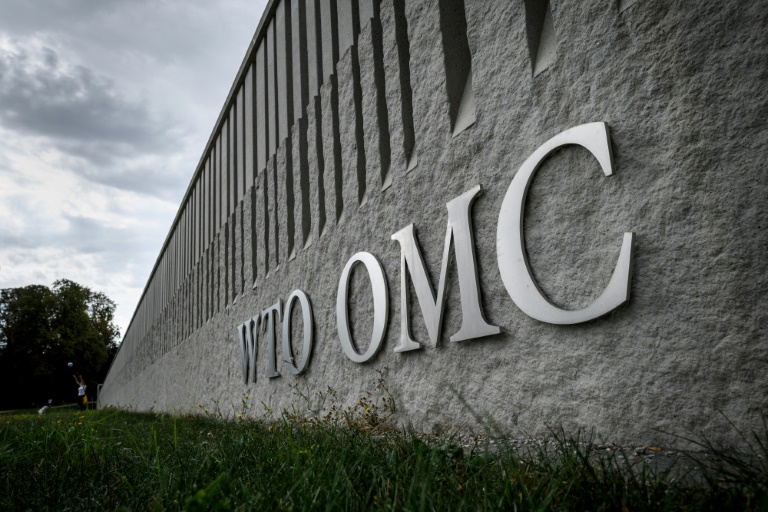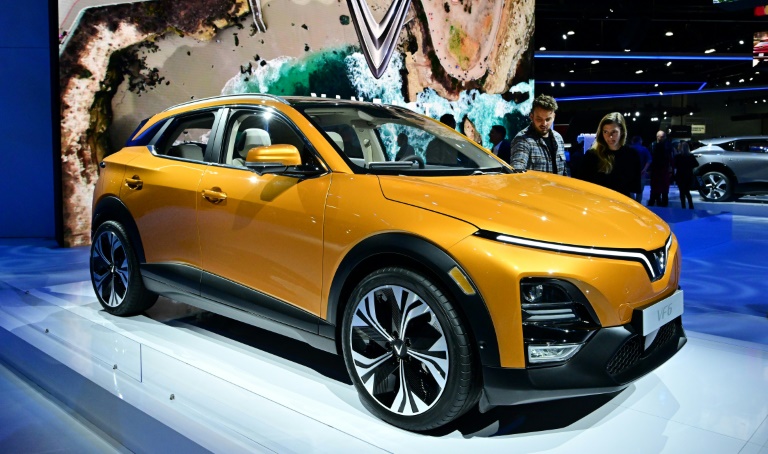EU starts WTO action against China over Lithuania, patents
The EU on Wednesday escalated disputes with China to the WTO, requesting panels be assembled to hear two cases, one over trade restrictions on Lithuania and the other on legal recourses for EU patent holders.
“In both cases, the Chinese measures are highly damaging to European businesses” and, in the Lithuania case, “impact the functioning of the EU internal market,” the European Commission said in a statement.
China is the European Union’s biggest trading partner, and the litigation burdens the World Trade Organization with a thorny challenge at a time its dispute settlement system is badly weakened.
The Lithuania case is over trade restrictions China has been applying to that EU member country because of Lithuania’s strengthening ties with Taiwan, which China views as part of its territory.
Beijing has denied taking coercive measures against Lithuania.
But Lithuanian exports to China have dropped 80 percent over the past year, ever since Chinese authorities started rejecting many Lithuanian imports.
The commission said that Chinese claims made in February that bans on Lithuanian alcohol, beef, dairy products, logs, peat and wheat were on health grounds were not justified.
Consultations with China early this year failed to address that issue, the commission said.
On the patents matter, the European Union is challenging decisions made by Chinese courts in August 2020 that barred EU owners of high-tech patents from turning to EU courts to protect their intellectual property.
The commission said that “Chinese manufacturers requested these anti-suit injunctions to pressure patent right holders to grant them cheaper access to European technology”.
– ‘Litigation stage’ –
An EU official briefing details to journalists on condition of anonymity said: “By requesting a panel, we’re essentially taking these two cases to the litigation stage.”
He added that “one of the reasons that we’re taking this course of action is because we see that they (Chinese authorities) take their WTO obligations seriously and we see that they have a good record of compliance”.
The WTO’s dispute settlement body will discuss the EU’s request for the panels on December 20. China can oppose it, but the EU can then renew its request, and the panels would then be established on January 30 next year.
A panel is the first WTO port of call for countries wanting to have a dispute adjudicated. They are typically composed of three experts but can have five in some cases.
The commission said the panels’ deliberations could last up to a year and a half.
The WTO’s dispute settlement system, however, is in a fragile state after the United States, under then president Donald Trump, in 2019 blocked the appointment of new judges to the body’s appeals tribunal.
Current US President Joe Biden has not lifted the block, insisting that the WTO must reform to be more efficient.
To ensure disputes can still be appealed, 16 WTO member countries in 2020 set up a separate and temporary appeal system called the Multiparty Interim Appeal Arbitration Arrangement (MPIA), to which China is a party.
The United States is seeking to get the European Union onside with its harsher stance against China, over trade, human rights and Beijing’s increasingly assertive military posture.
Washington has pledged to give Taiwan the military means to defend itself in the event of a Chinese invasion.
It has also barred Chinese telecom and tech companies from US networks.
The EU official briefing journalists said the United States, as well as Australia, Britain, Canada, Japan and Taiwan had sought to join the consultation phase of its disputes with China, but Beijing refused.
Those countries can ask to join the panels phase of the dispute as third parties, however, and China does not have the power to stop them.
“We would expect a reasonable number of WTO members to come in as third parties,” the official said.




